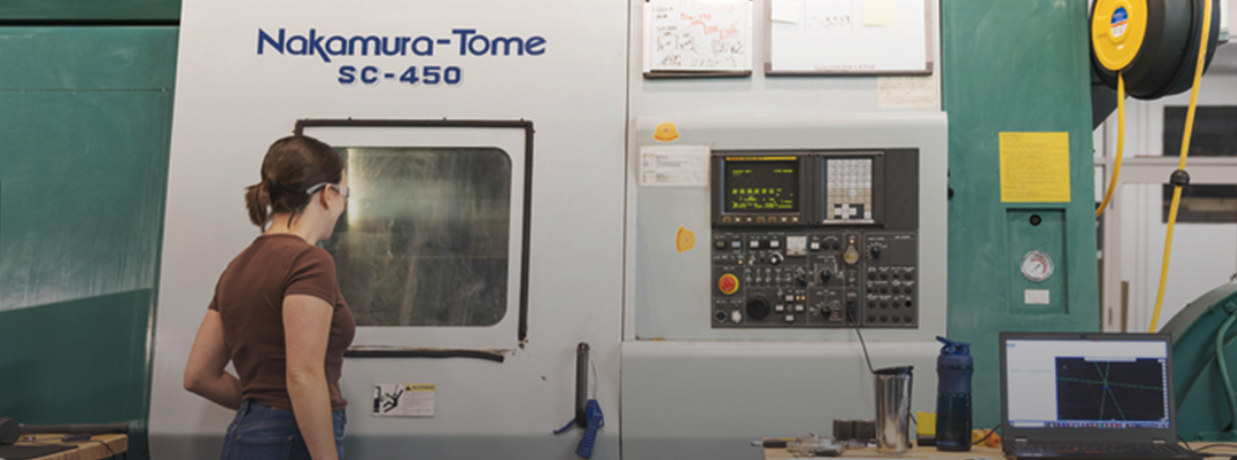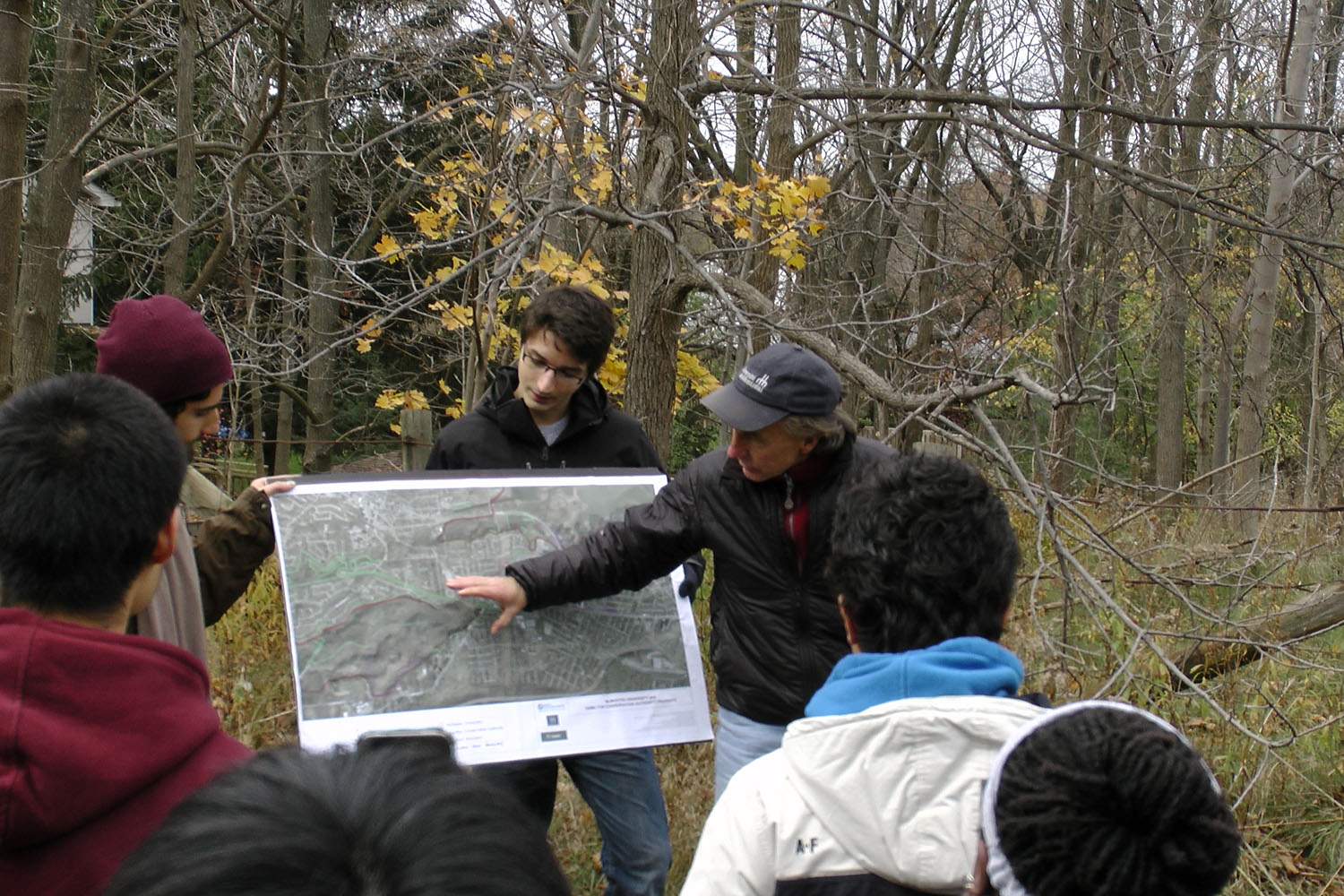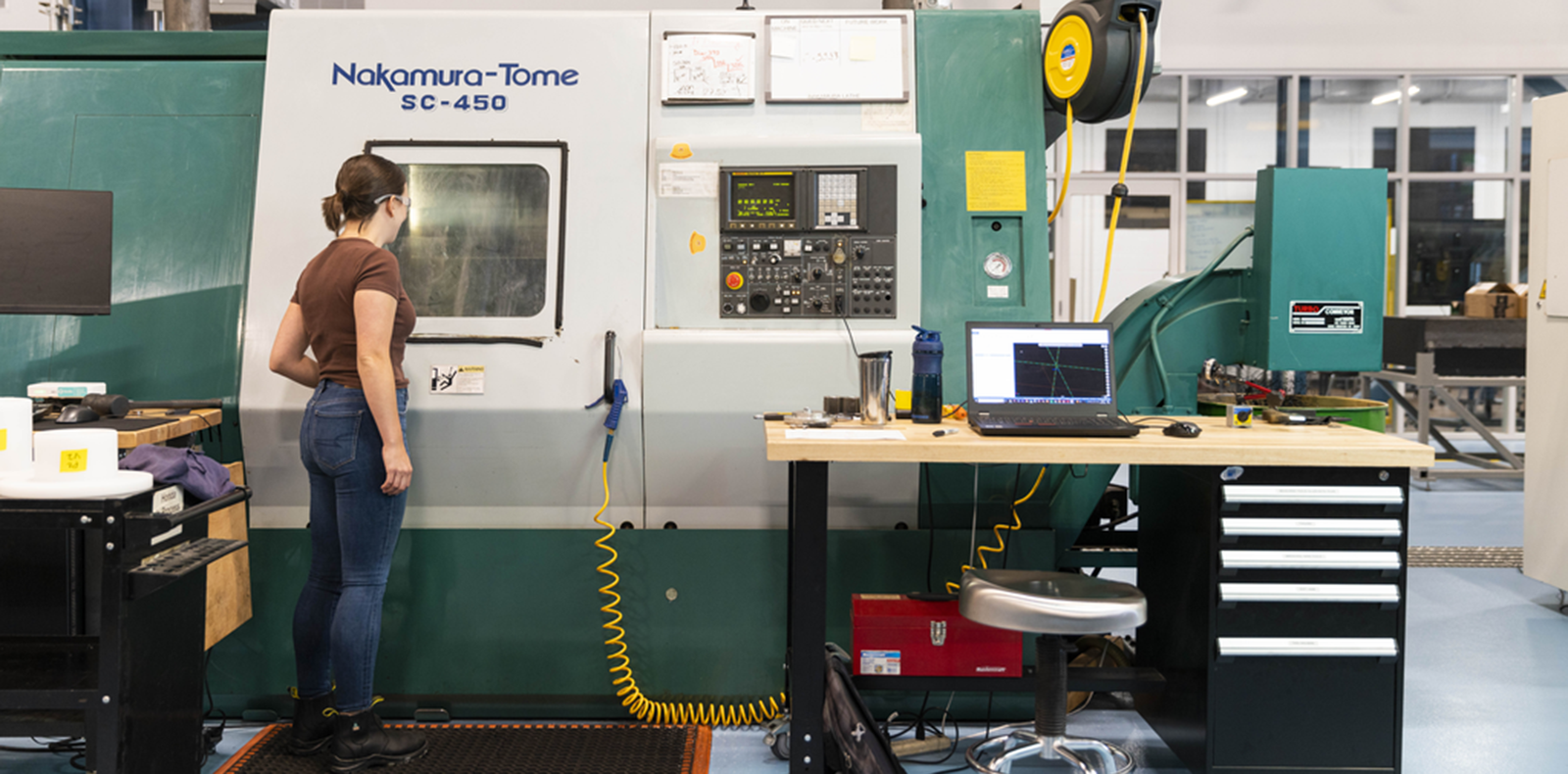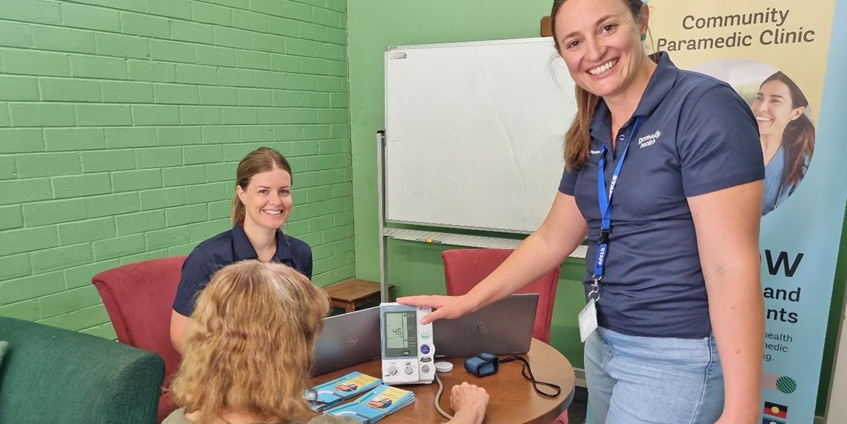Philosophy and Approach
A Message from Vice-Provost, Teaching & Learning Kim Dej
 Over the past five years, the number of microcredential offerings across the McMaster campus has risen steadily, in response to increased demand for professional development and skills enhancement from non-traditional learners and employers.
Over the past five years, the number of microcredential offerings across the McMaster campus has risen steadily, in response to increased demand for professional development and skills enhancement from non-traditional learners and employers.
These flexible learning opportunities can provide opportunities for growth and specialization for our current undergraduate and graduate students, but may also take the form of upskilling and continuing education for individuals already in the workforce, transition training for recent immigrants and those returning to the workforce, skills development to meet the needs of emerging labour sectors, and much more.
Microcredentials at McMaster
McMaster University defines a microcredential as a “designation of achievement of a coherent set of skills, competencies, or knowledge, specified by a statement of purpose, learning outcomes, and potential need by employers and/or in the community”? Microcredentials typically consist of one or more short courses focused on retraining, upskilling or expanding learners’ education, with each course typically between 6-18 hours in length.
What’s Next?
As the number of microcredentials offered by Faculties, the Inspire Office of Flexible Learning, and McMaster Continuing Education continue to increase, the Office of the Provost recognizes the importance of providing support for these initiatives. We have heard from many groups that there is a need for more guidance on the development, structures, and delivery of these opportunities. There is great interest in increasing our microcredential offerings, but there is also much confusion about how to get started.
The Office of the Vice-Provost, Teaching & Learning is convening a task force of experts, who will meet regularly during the Summer and Fall of 2024 to:
- refine language around what a microcredential is, and what it contains
- determine platforms for hosting, tracking, and advertising microcredentials
- implement structures to increase support for enrolment, payment, and credentialling processes
- create a recommended workflow for instructors interested in creating new microcredentials
We look forward to updating you on their progress, and working with partners across campus to enhance the resources available to educators seeking to offer these flexible learning opportunities.

Types of Microcredentials
McMaster University defines a microcredential as a “designation of achievement of a coherent set of skills, competencies, or knowledge, specified by a statement of purpose, learning outcomes, and potential need by employers and/or in the community”. Microcredentials typically consist of one or more short courses focused on retraining, upskilling or expanding learners’ education, with each course typically between 6-18 hours in length. McMaster offers Academic and Non-Academic Microcredentials, each with different requirements. Academic Microcredentials are further divided into Graduate and Undergraduate Academic Microcredentials. More details can be found below and in McMaster’s Certificates, Diplomas and Microcredentials Policy (2023).
Academic and Non-Academic Microcredentials
McMaster offers two distinct types of microcredentials—academic and non-academic. Non-academic microcredentials can also be stacked toward a Certificate of Completion or Certificate of Attendance.
Academic Microcredentials |
Non-Academic Microcredentials |
|
|
Academic requirements |
|
|
|
Assessment |
|
|
|
Admission requirements |
|
|
|
Student and learner supports |
|
|
|
Stacking and transfer of credentials |
|
|
Differences between certificates of completion and attendance
Non-academic microcredentials can be stacked toward a Certificate of Completion or Certificate of Attendance. Certificates of Completion involve programming with a minimum of 30 contact hours and with learner assessment. Certificates of Attendance do not involve learner evaluation. They cannot be stacked towards a Certificate of Completion. Further similarities and differences between the two types of certificates are outlined below:
Certificate of Completion |
Certificate of Attendance |
|
| Academic requirements |
|
|
| Purpose |
|
|
| Assessment |
|
|
| Admission requirements |
|
|
| Credit toward degree or other program studies |
|
|
Microcredential Examples Across McMaster
The following examples give a sense of the different ways that McMaster is delivering microcredentials.

Certificate of Completion in Sustainability Learn More
Type: Non-Academic Certificate of Completion
Description: Whether you want to launch a career in Sustainability or expand your knowledge of sustainable environment, economic and societal best practices, our online program can help.
Lead: McMaster Continuing Education
Certificate of Completion in Sustainability - Learn More
Type: Non-Academic Certificate of Completion
Description: Whether you want to launch a career in Sustainability or expand your knowledge of sustainable environment, economic and societal best practices, our online program can help.
Approach: Upon successful completion of three out of four courses (minimum of 30 course hours), students receive a non-academic certificate of completion. Students receive a digital credential that lists all the skills acquired during the courses to share and showcase to present and future employers.
Timing and Delivery: Students enrol in 3 parallel course over the course of 5 weeks. Each course is comprised of 10 instructional hours. All courses are offered online.
Application-based? No
Lead: McMaster Continuing Education

MMRI Industrial Training Program Learn More
Type: Non-Academic Microcredential or Certificate?
Description: This program is designed for industry professionals, whether you entered the working world with a college diploma or earned a PhD. As a specialized, skill-building further education opportunity in advanced manufacturing, the program will complement your prior experience and education, and challenge you to find solutions to today’s problems.
Lead: Faculty of Engineering – McMaster Manufacturing Research Institute
MMRI Industrial Training Program - Learn More
Type: Non-Academic Microcredential or Certificate?
Description: This program is designed for industry professionals, whether you entered the working world with a college diploma or earned a PhD. As a specialized, skill-building further education opportunity in advanced manufacturing, the program will complement your prior experience and education, and challenge you to find solutions to today’s problems.
Approach: The MMRI Industrial Training Program offers over 30 modules of specialized training in nine core areas: Materials, Machining, Processes, Design, Industry 4.0, Surfaces, Polymers, Programming and Management.
Timing and Delivery: Students earn a course certificate in one area by completing 4 modules from that area, 2 other modules of their choice and a relevant project representing 8-10 hours of effort. All courses, consultations and project work are currently being offered online.
Application-based? Yes
Lead: Faculty of Engineering – McMaster Manufacturing Research Institute

Outdoor Leader Training Learn More
Type: Non-academic Certificate of Completion
This workshop is designed to help trip leaders recognize, assess, manage, and avoid situations of potential risk in remote settings. Program learning includes a review of the importance of establishing and maintaining a healthy group atmosphere, techniques for establishing clear goals and expectations within a trip group, and the subtleties of group dynamics.
Lead: Athletics & Recreation
Outdoor Leader Training - Learn More
Type: Certificate of Completion
Description:This workshop is designed to help trip leaders recognize, assess, manage, and avoid situations of potential risk in remote settings. Program learning includes a review of the importance of establishing and maintaining a healthy group atmosphere, techniques for establishing clear goals and expectations within a trip group, and the subtleties of group dynamics.
Approach: TBD
Timing and Delivery: TBD
Application-based? TBD
Lead: Athletics and Recreation
Current Offerings
Microcredentials are offered by various Faculties and central units across campus. This page provides a comprehensive list of resources to further explore all microcredential offerings at McMaster.
If you oversee microcredential offerings, and do not see them listed here, please contact/complete the form here:
Information Box Group
Guidance and Resources
How to Propose a New Microcredential At McMaster
To launch a microcredential at McMaster, a proposal must be put forward and approved according to the following general process:
- Develop Concept: A group interested in developing new microcredential(s) must develop a comprehensive proposal including well-defined objectives, learning outcomes, curriculum and admission requirements (if applicable).
- Identifying Microcredential Host Partner: Individuals interested in offering a new microcredential should identify the body (Faculty, INSPIRE Office or McMaster Continuing Education) responsible for its initial review and for taking the proposal forward to the CDM Committee.
- Proposal Submission to CDM Committee: A Faculty, the INSPIRE Office or McMaster Continuing Education (MCE) take new proposals forward for review by the CDM committee. Individuals should first identify the appropriate body to work with during the development of their microcredential(s). With the exception of McMaster Continuing Education, groups that are not academic departments or Faculty-based units should contact and work with the INSPIRE Office.
- Proposal Submission to Undergraduate or Graduate Council: Proposals make a recommendation to Undergraduate or Graduate Council.
Proposal and Approval Criteria for New Microcredentials
Criteria for All Proposals
The CDM Committee and Undergraduate/Graduate Council will look for:
- Well-defined objective(s)
- Well-defined learning outcomes
- Curriculum to meet learning outcomes
- Admission requirements (if applicable)
Additional Criteria for Academic Microcredentials
Academic microcredentials must:
- Be at a level of intellectual rigour comparable to undergraduate or graduate degree programs in similar fields (this will be assessed by the Faculty most relevant to the content of the microcredential)
- Include a systematic evaluation of Student performance by methods usually used in degree courses, such as tests, essays, reports, narrative responses, interviews and/or other assignments.
Selecting a Partner to Host Your Microcredential
Microcredentials can be hosted with Faculties, McMaster Continuing Education (MCE), or the INSPIRE Office. Whether a course is brought forward and delivered through a Faculty, MCE or INSPIRE could depend on the target audience (e.g., internal or external learners, students or professionals) and the content (e.g., level of interdisciplinarity) of the micro-credential.
Faculty Pathway
If your concept is geared towards undergraduate students, graduate students, or professionals from your discipline augmenting their education within the workforce, bring your microcredential proposal through the faculty that aligns most with the course content
Example: a microcredential relating to nuclear engineering could be brought forward through the Faculty of Engineering
McMaster Continuing Education (MCE) - Learn More
If your concept is geared towards external learners through professional development and continuing education broadly, it can be brought forward through MCE.
Example: A microcredential related to using AI for project management
INSPIRE - Learn More
If you are from a non-academic unit and your concept is geared towards undergraduate or graduate students and/or if your concept is designed to be intentionally interdisciplinary in nature.
Example: A microcredential related to the appropriate use of AI in post-secondary education
Additional Information on Proposing A Microcredential
Microcredentials typically tend to be 6-18 hours in length. For academic microcredentials, one academic unit typically corresponds to 10-15 academic contact hours.
Certificates of Completion require a minimum of 30 contact hours whereas Certificates of Attendance have no minimum contact hours.
For Academic Microcredentials, any changes to the course description or requirements must be approved by the CDM committee and Undergraduate or Graduate Council.
For non-academic microcredentials, the phrase Non-Academic Microcredential must appear in the credential name (e.g. Non-Academic Microcredential in Outdoor Leader Training).
For academic microcredentials, the phrase Microcredential must appear in the credential name (e.g., Microcredential in Project Management)
For Certificates of Completion, the phrase Certificate of Completion must be included in the credential name (for example, the Teaching and Learning Foundations Certificate of Completion).
For Certificates of Attedance, the phrase Certificate of Attendance must appear in the credential name (for example, the Medical Acupuncture Program Certificate of Attendance)
Learner Experience and Recognition
Services and Learning Infrastructure Available to Students Learn More
Access to McMaster services and learning management systems (e.g., Microsoft 365 and Teams) vary depending on whether learners are enrolled in academic or non-academic microcredentials
Services and Learning Infrastructure Available to Students - Learn More
Students enrolled in an academic microcredential have access to specific University resources (such as library resources, Learning Management Systems, Microsoft 365 and Teams). If they are paying supplemental fees alongside tuition, they also have access to other University services. Students have rights and responsibilities under Student-specific University policies and the ability to appeal under Student Appeal Procedures.
Students taking nonacademic microcredentials do not have access to many of these university resources (including library resources, Learning Management Systems, Microsoft 365 and Teams) or other services for which students pay a supplemental fee alongside tuition.
Issuing Parchments Learn More about Who Can Issue Parchments
A parchment is documentation provided to a Student or Learner attesting to the successful completion of a credential, whether electronic or paper-based.
Issuing Parchments - Learn More about Who Can Issue Parchments
Academic and non-academic microcredentials can issued by a Faculty, the INSPIRE Office or McMaster Continuing Education, depending on where the microcredential is housed.
Transcripts Learn More
Recognition of microcredentials on student transcripts varies by the type of microcredential
Transcripts - Learn More
Nonacademic microcredentials do not appear on student transcripts. Academic microcredentials only appear on transcripts unless they are approved as part of a degree program.
Review of Student Evaluations Learn More
Students enrolled in academic microcredentials have access to existing Student appeal procedures while students enrolled in non-academic microcredentials must request a review from the Faculty Standing Committee on Microcredentials or McMaster Continuing Education.
Review of Student Evaluations - Learn More
Learners enrolled in non-academic microcredentials may request a review of their evaluation to the Faculty Standing Committee on Microcredentials or to MCE within 4 weeks of submission of their final grade. Learners will not have access to existing Student appeal procedures behind the Faculty or MCE standing committee. The learner must be informed of the decision within 3 weeks from the date of the review request.
Charging Student Fees
Microcredentials charging a fee must submit fee proposals to the University Student Fees Committee (USFC) for approval. This approval should be sought before submission of the microcredential proposal to Undergraduate or Graduate Council.
Issuing Tax Forms to Learners Learn More
Tax forms should be issued to students in accordance with CRA guidelines.
Resources and Supports for Developing Microcredentials
INSPIRE Office Contact INSPIRE
INSPIRE offers proposal support and issues microcrentials to those looking to host a microcredential through INSPIRE. INSPIRE also offers consultation for those in the initial processes of developing a microcredential and identifying which group (INSPIRE, MCE or Faculty) to house the microcredential in.
Key supports: Advice on concepts; guidance on governance and approvals; information on upcoming grants
MacPherson Institute
The MacPherson Institute offers a range of supports and resources to relevant to teaching and learning scholarship, including education and course design.
Key supports: curriculum and course development supports, professional development programming for teaching excellence
McMaster Continuing Education Contact MCE
McMaster Continuing Education (MCE) hosts a range of microcredential programs across areas such as business, health, technology, and professional development.
Key supports: guidance on proposing and hosting microcredentials through MCE
Office of Community Engagement Visit the OCE
To promote alignment of a microcredential with real-world needs, consultation and collaboration is encouraged with community partners and/or employers. The Office of Community Engagement (OCE) may be able to connect educators with relevant community partners.
Key supports: facilitating connections with local employers, community organizations, and community-engaged campus groups
Expandable List
The eCampus Ontario Micro-credential Framework was developed by post-secondary institutions, employers, and public agencies and encourages alignment with the following principles when designing microcredentials:
- Relevance: Micro-credentials will only be issued for competencies that are currently relevant to the labour market. Relevance is achieved through consultation and partnership between employers, community partners and post-secondary institutions in the development and delivery of the course.
- Verifiability: Micro-credentials will be verifiable, and integrity will be maintained.
- Ownership: Once awarded, micro-credentials and associated data will be the property of the earner
- Extensibility: Micro-credentials will be designed to facilitate continuous pathway for lifelong learning, where possible.
Explore the eCampus Ontario Micro-credential Principles and Framework here.
Get Started
Learn about upcoming deadlines, who to connect with, and resources that can help you get started.
Upcoming Approval Cycles
Moving your microcredential proposal through McMaster’s microcredential governance and approval processes usually takes about 4 months from approval at the Faculty level. The following scenarios and timelines have been created to help you determine when to move your concept into the approval process. Please note that the dates and timelines provided are for demonstration purposes; please reach out to the INSPIRE Office of Flexible Learning (see below) for the most up-to-date guidance on timing based upon where you’re currently at.
Fall 2025 Launch Click here for Fall 2025 approvals timeline
If you are aiming to launch a new microcredential in Fall 2025, following the timeline framed in this pop-up window will help you to get approval as early as possible. Please note that you are not able to advertise a microcredential until it has been approved at the Board of Governors.
Approvals Timeline - Fall 2025 Launch
If you are eyeing the launch of a new microcredential for Fall 2025, you should be moving your concept through the proposal and approvals process as soon as possible in early 2025.
- Faculty, MCE, or INSPIRE Approvals: Before going to the Certificates, Diplomas, and Microcredentials Committee, your proposal must be approved by the group that will be championing your proposal through the remainder of the process.
- Certificates Diplomas & Microcredentials Committee Meetings
- Undergraduate or Graduate Council Meetings:
- Student Fees Committee
- UPC
- Board Approval…
Winter 2026 Launch Click here for Winter 2026 approvals timeline
If you are aiming to launch a new microcredential in Winter 2026, following the timeline framed in this pop-up window will help you to get approval as early as possible. Please note that you are not able to advertise a microcredential until it has been approved at the Board of Governors.
Winter 2026 Launch - Click here for Winter 2026 approvals timeline
If you are eyeing the launch of a new microcredential for Winter 2026, you should be moving your concept through the proposal and approvals process as early in 2025 as possible with Spring 2025 being the latest window you should be aiming for.
- Faculty, MCE, or INSPIRE Approvals: Before going to the Certificates, Diplomas, and Microcredentials Committee, your proposal must be approved by the group that will be championing your proposal through the remainder of the process.
- Certificates Diplomas & Microcredentials Committee Meetings
- Undergraduate or Graduate Council Meetings:
- Student Fees Committee
- UPC
- Board Approval…
Spring 2026 Click here for Spring 2026 approvals timeline
If you are aiming to launch a new microcredential in Spring 2026, following the timeline framed in this pop-up window will help you to get approval as early as possible. Please note that you are not able to advertise a microcredential until it has been approved at the Board of Governors.
Spring 2026 - Click here for Spring 2026 approvals timeline
If you are eyeing the launch of a new microcredential for Spring 2026, you should be moving your concept through the proposal and approvals process by Spring 2025 with Fall 2025 being the latest window you should be aiming for.
- Faculty, MCE, or INSPIRE Approvals: Before going to the Certificates, Diplomas, and Microcredentials Committee, your proposal must be approved by the group that will be championing your proposal through the remainder of the process.
- Certificates Diplomas & Microcredentials Committee Meetings
- Undergraduate or Graduate Council Meetings:
- Student Fees Committee
- UPC
- Board Approval…
Information Box Group
If you have questions about creating or delivering microcredentials at McMaster, contact the INSPIRE Office below.








